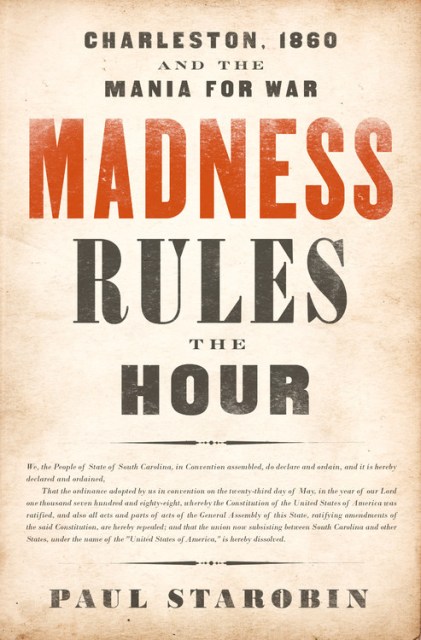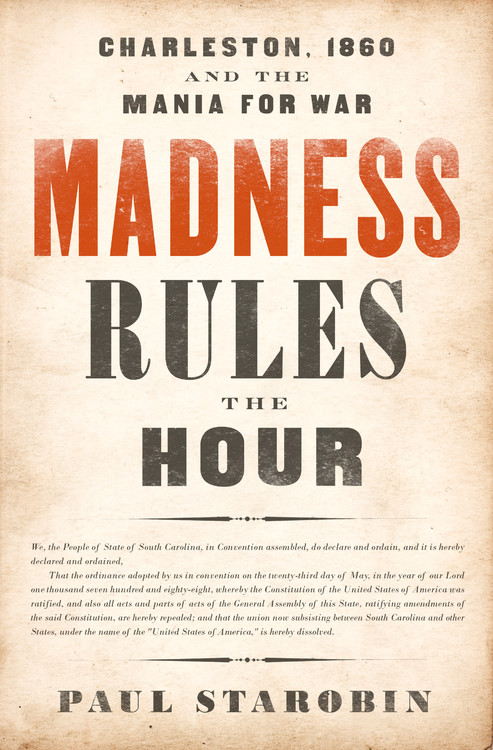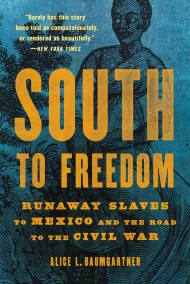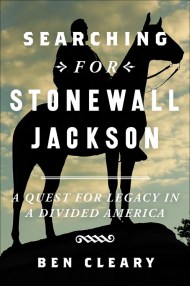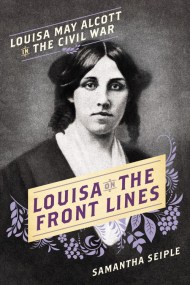Madness Rules the Hour
Charleston, 1860 and the Mania for War
Contributors
Formats and Prices
Price
$16.99Price
$22.99 CADFormat
Format:
- Trade Paperback $16.99 $22.99 CAD
- ebook $11.99 $15.99 CAD
- Hardcover $27.00 $35.00 CAD
- Audiobook Download (Unabridged) $27.99
Also available from:
From Lincoln’s election to secession from the Union, this compelling history explains how South Carolina was swept into a cultural crisis at the heart of the Civil War.
“The tea has been thrown overboard — the revolution of 1860 has been initiated.” — Charleston Mercury, November 8, 1860
In 1860, Charleston, South Carolina, embodied the combustible spirit of the South. No city was more fervently attached to slavery, and no city was seen by the North as a greater threat to the bonds barely holding together the Union. And so, with Abraham Lincoln’s election looming, Charleston’s leaders faced a climactic decision: they could submit to abolition — or they could drive South Carolina out of the Union and hope that the rest of the South would follow.
In Madness Rules the Hour, Paul Starobin tells the story of how Charleston succumbed to a fever for war and charts the contagion’s relentless progress and bizarre turns. In doing so, he examines the wily propagandists, the ambitious politicians, the gentlemen merchants and their wives and daughters, the compliant pastors, and the white workingmen who waged a violent and exuberant revolution in the name of slavery and Southern independence. They devoured the Mercury, the incendiary newspaper run by a fanatical father and son; made holy the deceased John C. Calhoun; and adopted “Le Marseillaise” as a rebellious anthem. Madness Rules the Hour is a portrait of a culture in crisis and an insightful investigation into the folly that fractured the Union and started the Civil War.
“The tea has been thrown overboard — the revolution of 1860 has been initiated.” — Charleston Mercury, November 8, 1860
In 1860, Charleston, South Carolina, embodied the combustible spirit of the South. No city was more fervently attached to slavery, and no city was seen by the North as a greater threat to the bonds barely holding together the Union. And so, with Abraham Lincoln’s election looming, Charleston’s leaders faced a climactic decision: they could submit to abolition — or they could drive South Carolina out of the Union and hope that the rest of the South would follow.
In Madness Rules the Hour, Paul Starobin tells the story of how Charleston succumbed to a fever for war and charts the contagion’s relentless progress and bizarre turns. In doing so, he examines the wily propagandists, the ambitious politicians, the gentlemen merchants and their wives and daughters, the compliant pastors, and the white workingmen who waged a violent and exuberant revolution in the name of slavery and Southern independence. They devoured the Mercury, the incendiary newspaper run by a fanatical father and son; made holy the deceased John C. Calhoun; and adopted “Le Marseillaise” as a rebellious anthem. Madness Rules the Hour is a portrait of a culture in crisis and an insightful investigation into the folly that fractured the Union and started the Civil War.
-
"'Madness Rules the Hour,' Paul Starobin's fast-paced, engagingly written account of the hysteria that descended on lovely Charleston--where the unthinkable became the inevitable--is as much a study in group psychology as it is in history...The conductors of this movement were the city's elite, whom Starobin presents in finely drawn portraits."New York Times Book Review
-
"[A] gripping new narrative history...[a] bracing, seamlessly narrated account of the hysterical events in Charleston in 1860..."Washington Times
-
"A dramatic and engaging addition to Civil War studies that serves as a fitting bookend paired with Jay Winik's account of the end of the war, April 1865 (2001)."Kirkus Reviews, STARRED REVIEW
- On Sale
- Apr 21, 2020
- Page Count
- 288 pages
- Publisher
- PublicAffairs
- ISBN-13
- 9781541798014
Newsletter Signup
By clicking ‘Sign Up,’ I acknowledge that I have read and agree to Hachette Book Group’s Privacy Policy and Terms of Use
